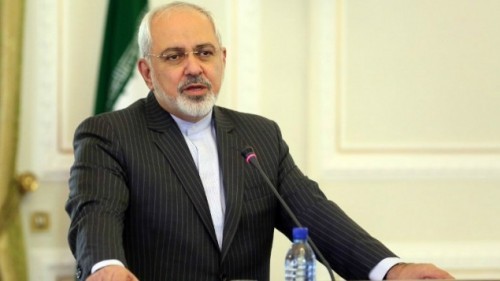
Iranian Foreign Minister Mohammad Javad Zarif will join talks in Vienna this week aimed at ending the conflict in Syria, a top official in Tehran told state television on Wednesday.
“We have reviewed the invitation, and it was decided that the foreign minister would attend the talks,” foreign ministry spokeswoman Marzieh Afkham said, without disclosing when he would arrive.
On Tuesday, Zarif and Russian Foreign Minister Sergei Lavrov held a phone call to discuss ways to resolve the Syrian crisis, the Russian Foreign Ministry said in a statement. Lavrov also spoke to US Secretary of State John Kerry, the ministry said.
US State Department spokesman John Kirby said Kerry would travel to Vienna, and from there he would head to Central Asia for discussions with counterparts from Kyrgyzstan, Uzbekistan, Kazakhstan, Tajikistan and Turkmenistan.
While the US doesn’t approve of Iran’s “destabilising activities” in Syria, Kirby said American officials “always have recognised that at some point in the discussion, moving toward a political transition, we have to have a conversation and a dialogue with Iran”.
The United States is taking a gamble. Iran has backed President Bashar Assad’s government throughout the conflict, fighting alongside the Syrian military, and is seen by Western-backed rebels and US partners in the region as a major source of the bloodshed.
The Syrian opposition may balk at Iran’s inclusion in any discussions on what a post-Assad Syria should look like.
On the other hand, all previous international efforts have done nothing to stop the fighting, and Kerry is trying to unite all sides with influence in the Arab country around a common vision of a peaceful, secular and pluralistic Syria governed with the consent of its people.
Washington had actively opposed Iran participating in two earlier, months-long mediation attempts but recently spoke of the possibility of Iran joining future talks.
It offered Tehran a seat after days of behind-the-scenes negotiation, particularly with its regional rival Saudi Arabia, according to officials who weren’t authorized to speak publicly on the matter and demanded anonymity.
In a telephone conversation Tuesday, President Barack Obama and Saudi King Salman spoke about cooperating closely to fight the Islamic State and to “establish the conditions for a political transition in Syria,” according to a White House statement.
They vowed to build on recent diplomatic efforts. The statement didn’t mention anything about Iran.
Iran clearly has a stake in Syria’s future, as Assad’s government has helped the Iranians exert dominance over nearby Lebanon and threaten Israel through their proxy, Hezbollah.
The US, Russia, Saudi Arabia and Turkey met last week in Vienna, putting forward new ideas to revive diplomatic hopes. However, they remained deeply divided over Assad’s future.
The United States and its partners say Assad can participate in a “political transition,” but would have to leave power at the end of the process if Syria is to move on from a war that has killed at least 250,000 people and forced more than 11 million from their homes. Russia and Iran reject that demand.
Other sticking points include the length of the transition, and what a new constitution and future elections might look like.
Beyond Iran, this week’s gathering will expand to include countries such as Britain, France, Germany, Jordan and the United Arab Emirates.
Amid all the talking, fighting in Syria goes on. Since last month, Russia has launched hundreds of airstrikes targeting what it says are the Islamic State and other terrorist groups. The Obama administration, NATO and others say most of the bombs are landing on moderate rebel militias, some backed by the CIA.
Meanwhile, violence continues to rage between rebel groups and the Islamic State, and in the Kurdish region in northern Syria, even drawing in Turkey.
FRANCE 24 with AP and REUTERS

Leave a Reply
You must be logged in to post a comment.